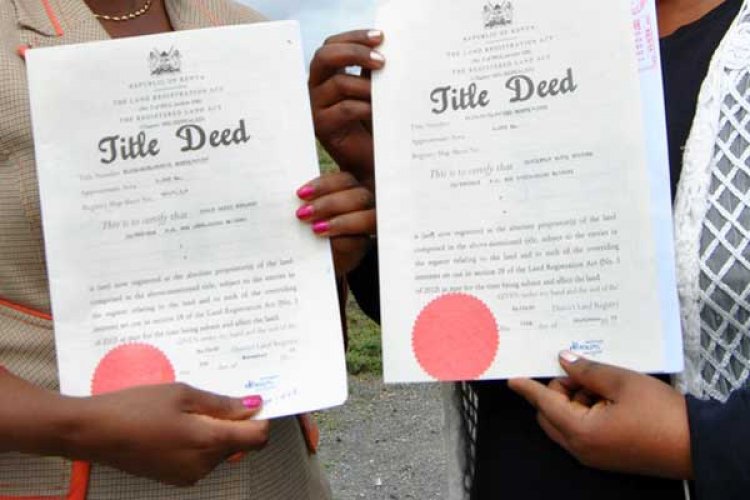Women and Property Ownership Rights In Kenya
Lots of mythical information regarding women and ownership of property has made it quite a hard task for the women in the country to own property.

Living in a country like Kenya where societal expectations and the norms surrounding gender roles usually frowned upon ownership rights while perennially favoring men to register ownership of property, women may have embraced dictates of chauvinistic and predominantly male “infested’’ society.
This, however, failed to stand the test of time as the constitution of Kenya has recently been diversified to the extent of full inclusivity in regards to property ownership, and women can now own property and the constitution shields them from prosecution of any kind.
Despite the constitutional amendments that allow them to own land, those who reside in rural areas are still marginalized.
There should be adequate data regarding how much land is owned by women in Kenya because this information will be helpful in the formulation of policies and the implementation of programs that would help reduce the challenges that women face when it comes to accessing and owning land.
Here are some of the land ownership rights as outlined by the constitution
Marriage Act.
This act calls for registering all marriages this gives women a legal basis for land ownership rights.
Matrimonial Property Act 2013
It gives women new set of rights when it comes to land ownership which includes the right to consent to sell a property that was purchased jointly with their partners.
Under the Matrimonial property act not only can women buy and register land individually but they can also inherit land from their parents. In the case of a polygamous marriage, each wife based on the purchase and maintenance of the land is supposed to be given a portion of the land.
Limitations of the matrimonial property act.
This act only applies when the husband and wife have purchased the property together. It does not cover ancestral property that has been inherited by the husband from his father.
The Law of Succession Act
This law gives both male and female children equal rights of inheritance. It clearly states who can inherit the property of the deceased, and outlines how to apply for succession from the deceased to the beneficiaries in the cases where there is a will or in the absence of one.
It varies under testate and intestate succession, a) Testate succession Property is distributed according to the will of the deceased b) Intestate succession Here the deceased has not left a will behind, the surviving spouse is therefore eligible for personal and household belongings of the deceased and is expected to hold the land in trust for their children both male and female to equally divide it among them. Where there is no spouse the land goes to the children.
In the case of polygamous marriages, the land is divided among the households according to the number of children that are in each house.
Common Inheritance practices
Patrilineal
This is where the property is handed down from father to son, if the man has no sons then his brother, nephew, or male relative is given the property.
In this norm, daughters do not inherit their father's property even though they are from the same lineage because it is believed that daughters leave their family and community when they marry to join their husbands' community and since wives are under their husbands' responsibility. It is seen that if they inherit the land their husbands will take control over it.
Matrilineal
In some African countries such as Southern Malawi where only daughters are the heirs of their matrilineage’s land and sons use their wives' land or in some special cases use the fields temporarily belonging to their female matrikin.
Property ownership rights and information should therefore be made available for access by women in the country who shy away due to lack of information.


































